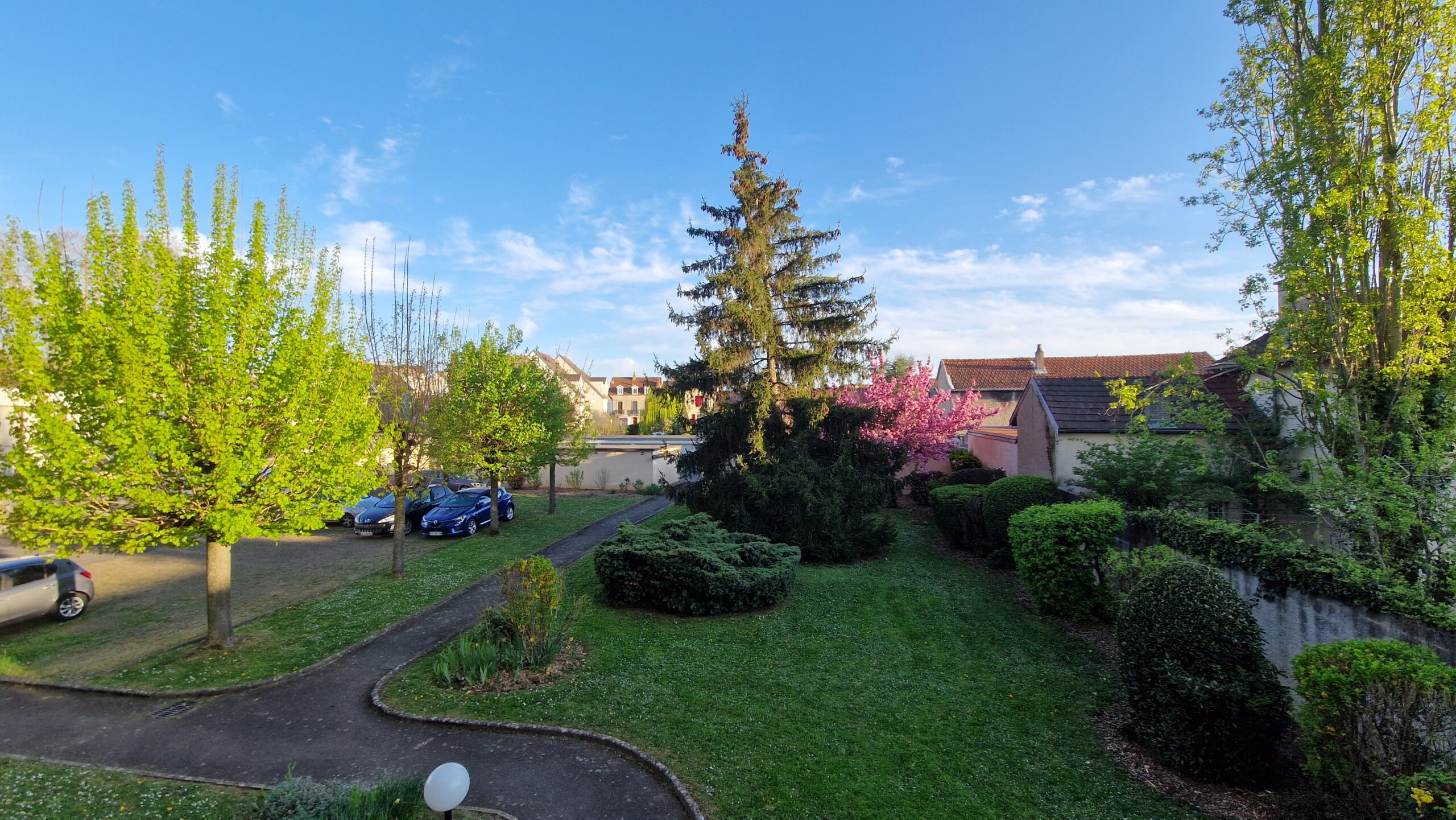
It’s the 1st of June 2025. I am 42 years old, writing on my laptop from my living room in Dijon, France. The sun is slowly setting on a bright and warm spring day.
Two other tabs are open. The first displays a one way ticket to Yogyakarta, and the second a two months tourist visa application. Next to the laptop, a Kindle is loaded with “Indonesian for Beginners”. Looking out the window, I remember how it all started.
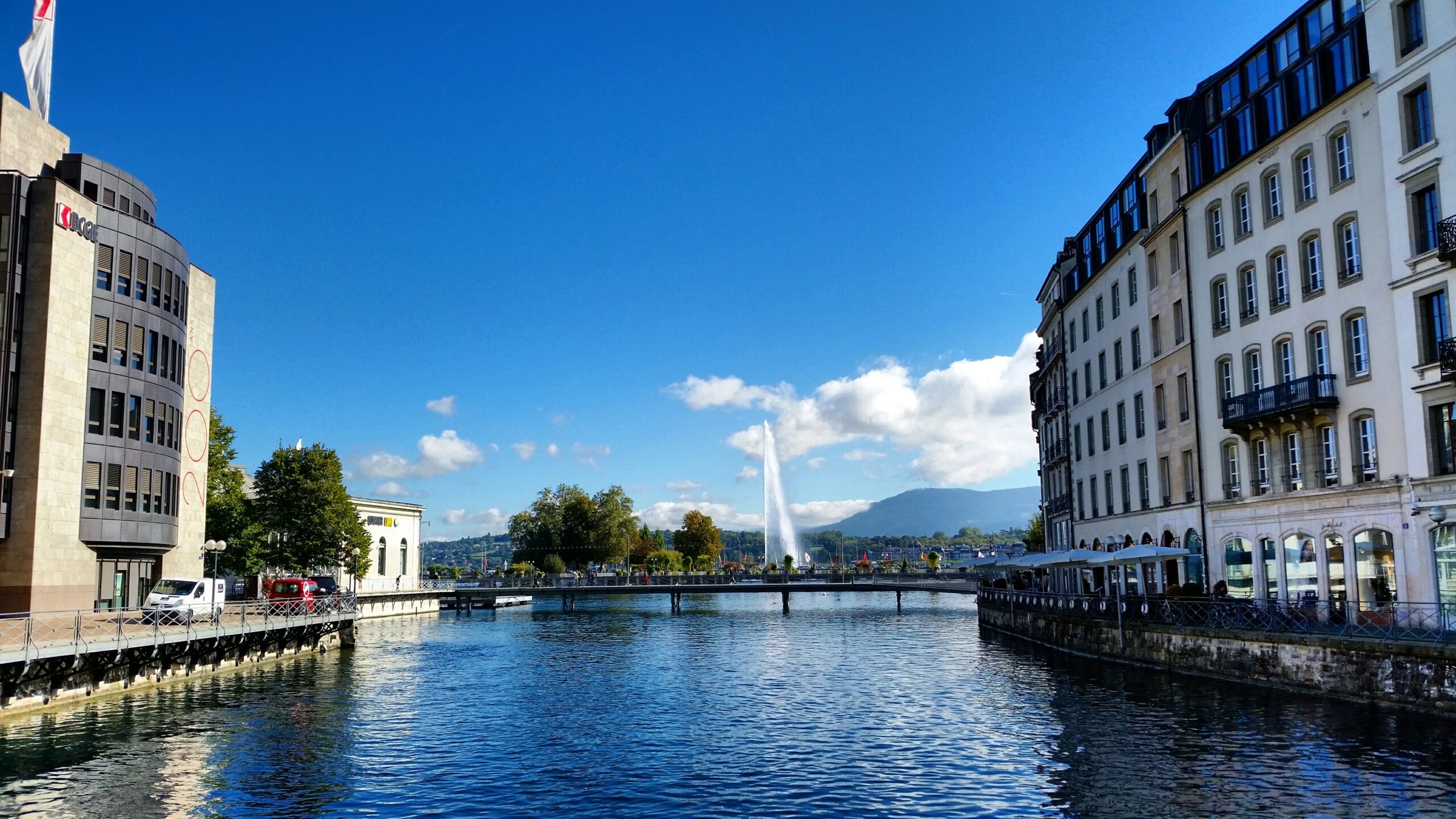
It was a sunny winter day of 2012. I was 29, living in Geneva, Switzerland. From the window of my tiny flat, lost in thoughts, I was looking at the facing building.
Even three years after my latest burnout, my work output was still ridiculously low. The renewal of my research assistant contract was coming, and there was little hope. This second burnout went way past the gates of depression, and brought me to the lowest I have ever felt. Since then, the idea of continuing this career was dreadful. Over the past couple of years, I had tried many activities and hobbies: music, power-lifting, MMA, dancing, drawing… It was interesting, and some activities stuck, but nothing really clicked.
The air was cold, and a few white clouds were lazily floating in the blue sky. Where were they going?
That’s when something clicked within my chest. A piece falling right into its place, followed by a feeling of wholeness.
You probably felt something similar. You ruminate on a problem for ages, feel stuck and can’t seem to find a way. In the background, your subconscious is working hard on it as well.
And then if found it. Emerging from the depth of my mind came the missing piece: travel.
Back when I was 15 years old, I played Final Fantasy 7 for the first time. After the first part of the game, you leave the starting area (the city of Midgar), and reach the world map. From there, you can go wherever you want. The whole world is opening its arms.
What an overwhelming feeling of freedom and wonder. It was exhilarating. All these places to see, these characters to meet, these stories to live. Surely, exploring the real world must be even better.
And life happened. First finishing engineering school, before having to work part to full-time while doing both my bachelor and master at university. Then came the research assistant opportunity. Over the years, the old dream sank down into amnesia.
But now, I had time and a bit of savings. The real world was opening its arms.
The next day, my supervisor accepted my resignation without objections. There were still a couple of months before the end of my contract. Enough time to get ready.
Where should I start? What should I bring? What should I do with my flat and stuff.
But then the phone rang. It was my father. He urgently needed money. The amount was a little more than the estimated budget for my trip.
The real world folded its arms.
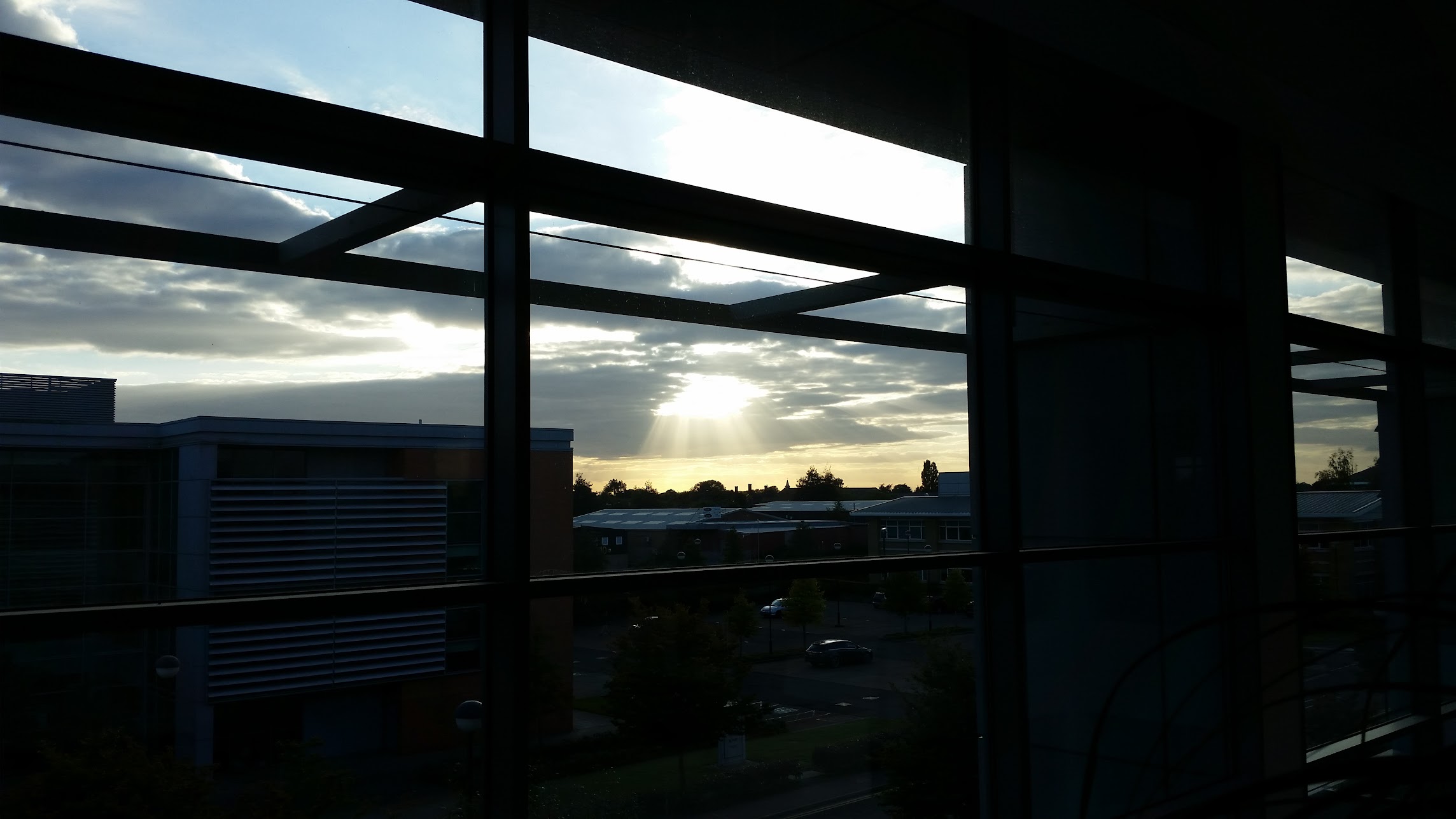
A late afternoon of spring 2015, I was 32, living and working in Cambridge, UK. Taking a break from work, looking at the setting sun, the sky was beautiful.
Three years ago, after helping my father, finding a new job became a necessity. The dream of travel took the backseat again. Thus, I went for the next best thing: working abroad. I applied in the UK, hoping to land a job in London, and ended up in Cambridge.
I love Cambridge. The city is spellbinding, with centuries old colleges and historical buildings, plenty of green places, and friendly people from all around the world. Truly a magical place.
Nonetheless, the interest for my career is as dead as it can be. Work is only about money. The ensemble of things I am looking forward to are dangerously shrinking down to: coffee, beer with friends, and the gym.
Not so far away was a hole in the clouds through which sunlight was bathing some place. What could be down there? What could be even further, after the horizon? And then it clicked again: Go see it by yourself!
The missing piece came back. And I knew what to do next.
At this stage of my life, I had saved a bit of money. I also had heard about a potential unpaid leave policy at my company. What do I have to lose?
“You can ask for up to 6 months unpaid leave, but it remains at your manager’s discretion.” I immediately started the procedure, asking for four months… and received two: October and November 2015.
Have you ever been in an airport before a long trip? Your backpack is weighing on your shoulders, all excited about the things you are going to see, the people you are going to meet, the food you are going to taste.
I was ecstatic. My feet were barely touching the ground. My eyes kept running from the departure screen to the gates. My hands kept moving back and forth between the tickets, wallet, passport, and phone; making sure nothing was missing.
“Where do I go? Oh, there! Should I eat before departure? Do I have time to sit down in the hall, or should I run to the gate?”
On the first plane, I was smiling so hard the people sitting next to me looked politely uncomfortable.
Two months does sound like a lot… And it was.
Our retrospective conception of time is based on our memories, and similar memories physically overlap in the brain. Which means that our brains see very little difference between almost identical days.
Let’s pick a totally random example, like your typical white-collar workday. We wake up, get out of bed (often after a couple of snoozes), before following the same every day washing-dressing-eating routine. Then comes the commute, using the same, exact, every day path. After reaching the workplace comes meetings, and sitting down at our desks, focusing on screens. At midday, we go for lunch with the team and eventually have a little walk. The afternoon follows a similar pattern of meetings and computer time, before finally doing the same exact every day commute back home.
Five, ten, twenty years pass. One day, we wake up in panic, asking: “What happened? Where did all the time go?” Because our brains stored everything in the same place, our memories seem to spread in only a few days.
In contrast, let’s take a car or hop on the train for the weekend. We leave early Saturday morning to a nearby place we have never seen. We spend the weekend there, and come back home on Sunday night. On Monday morning, this little weekend seems so much longer.
Now, scale that to two months.
The plan was a month in New Zealand, followed by a month going from Hanoi to Bangkok. Only booking plane tickets from London to Auckland, Auckland to Hanoi, and Bangkok to London, as well as the first two hostel nights.
Between these flights? We’ll see.
This trip went better than my wildest dreams, with more places, adventures, and people than I had imagined.
In New Zealand, I rafted in white waters, rolled down a hill in a giant ball, and jumped from a canyon. I was so euphoric, I sang and danced while trekking alone in the Abel Tasman National Park.
In South East Asia, I doubted my eyes on the beauties of Ha Giang in Northern Vietnam, visited ancient, charming, vibrant cities, and even an abandoned water park. I met so many people, travellers and locals, with incredible life stories.
Every day was different, every place, person, city, trek, road. As it ended, it felt as if years had gone by. These two months of travel felt longer than the years spent studying and working.
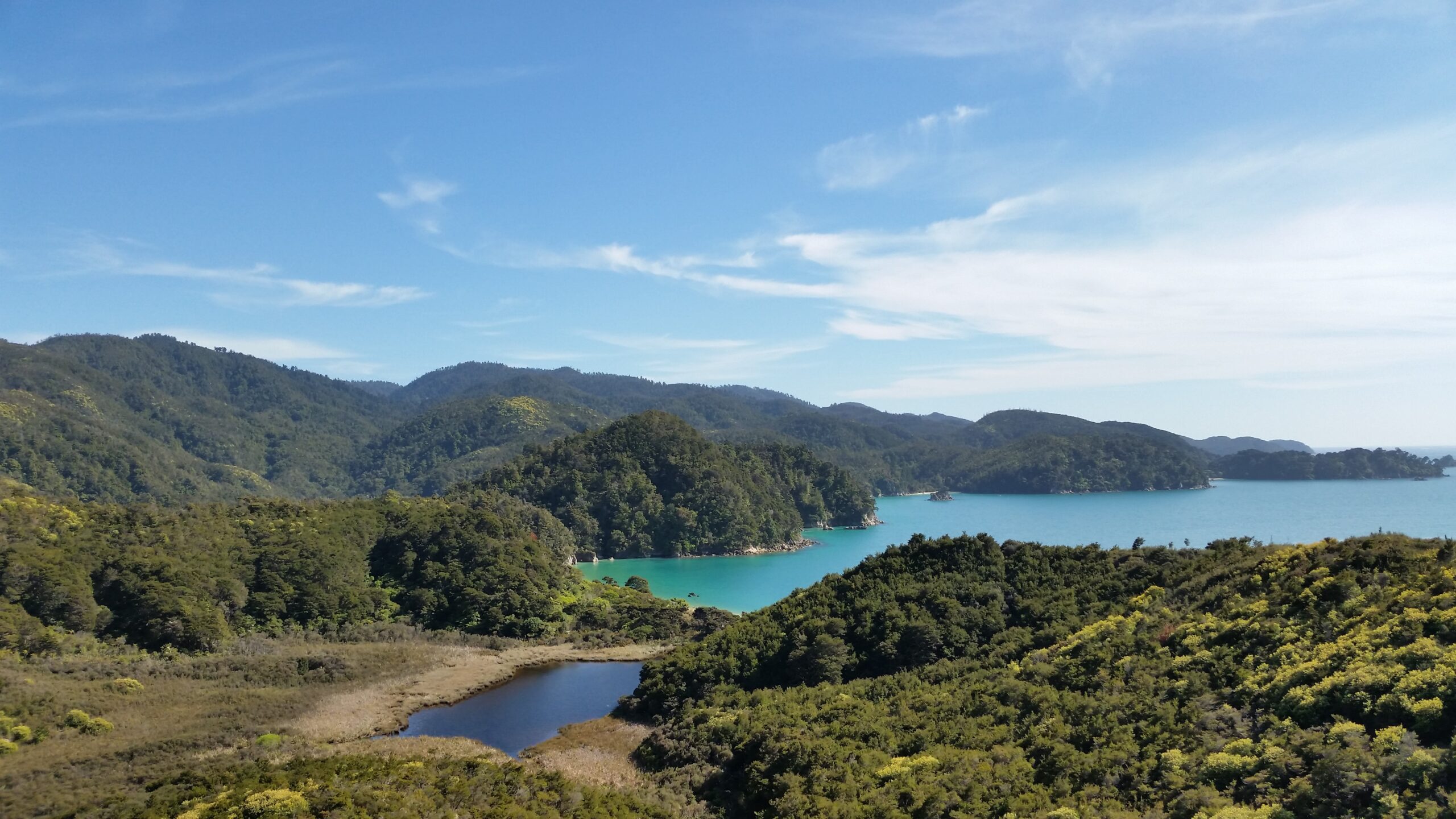
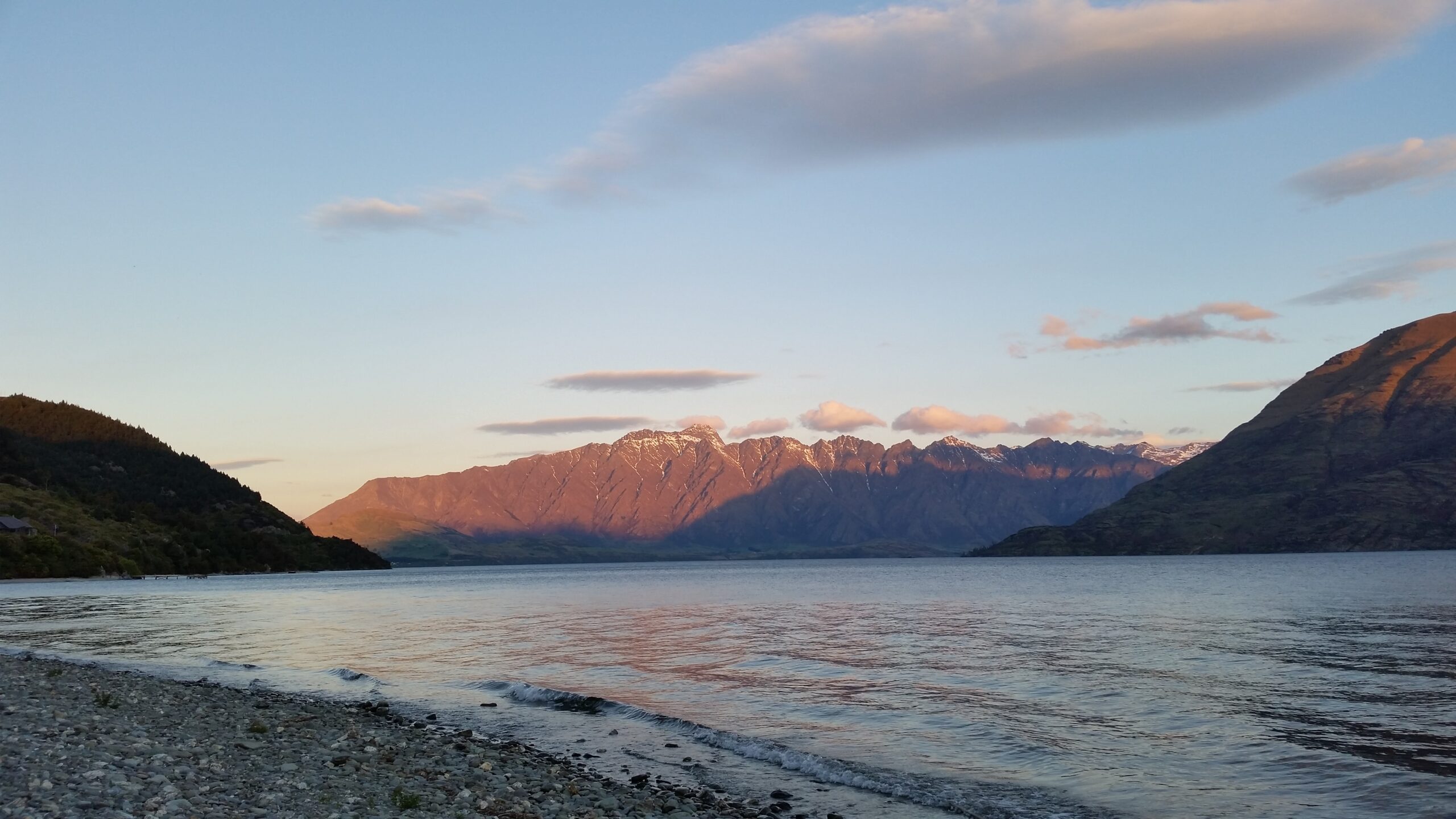
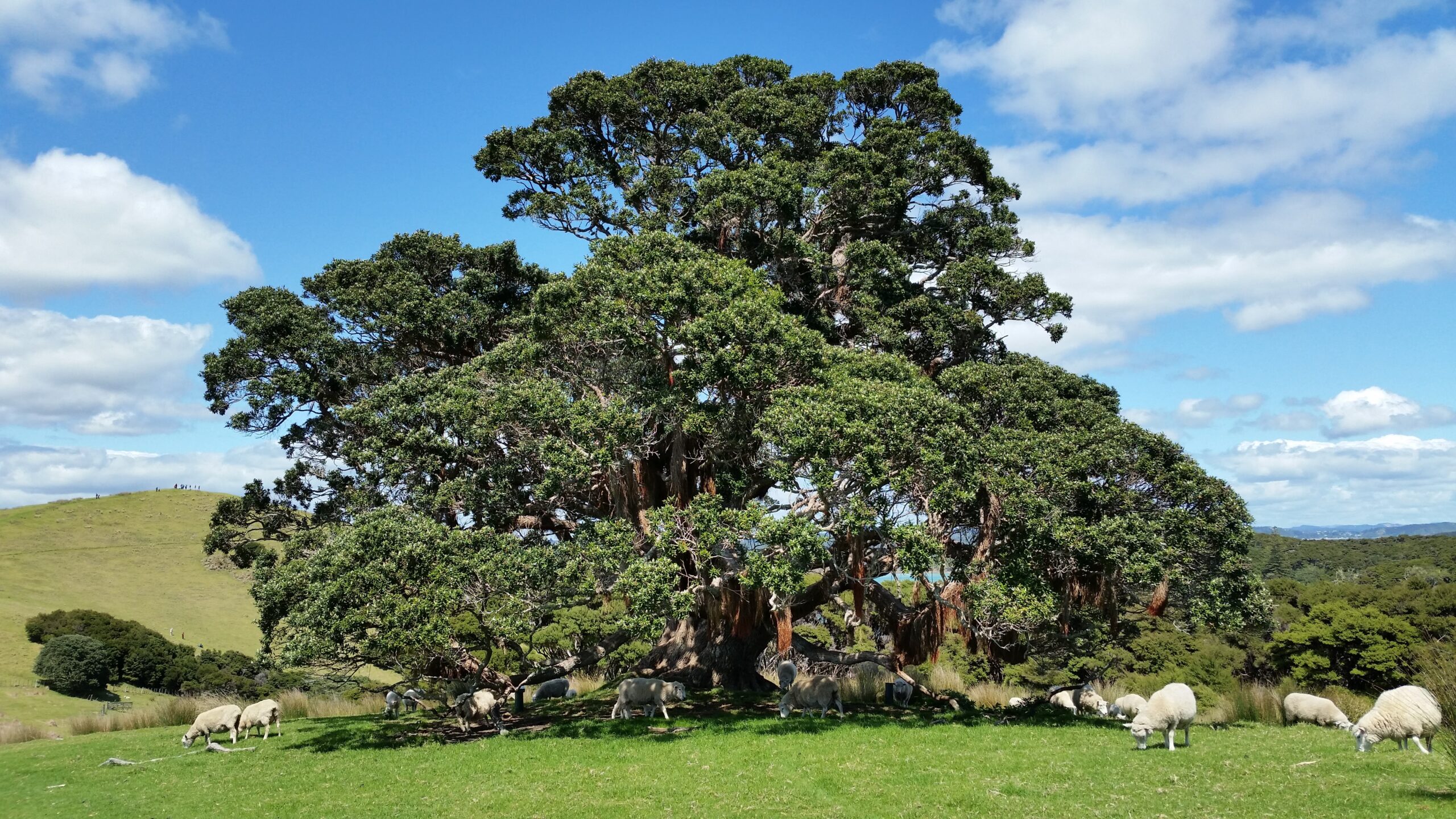
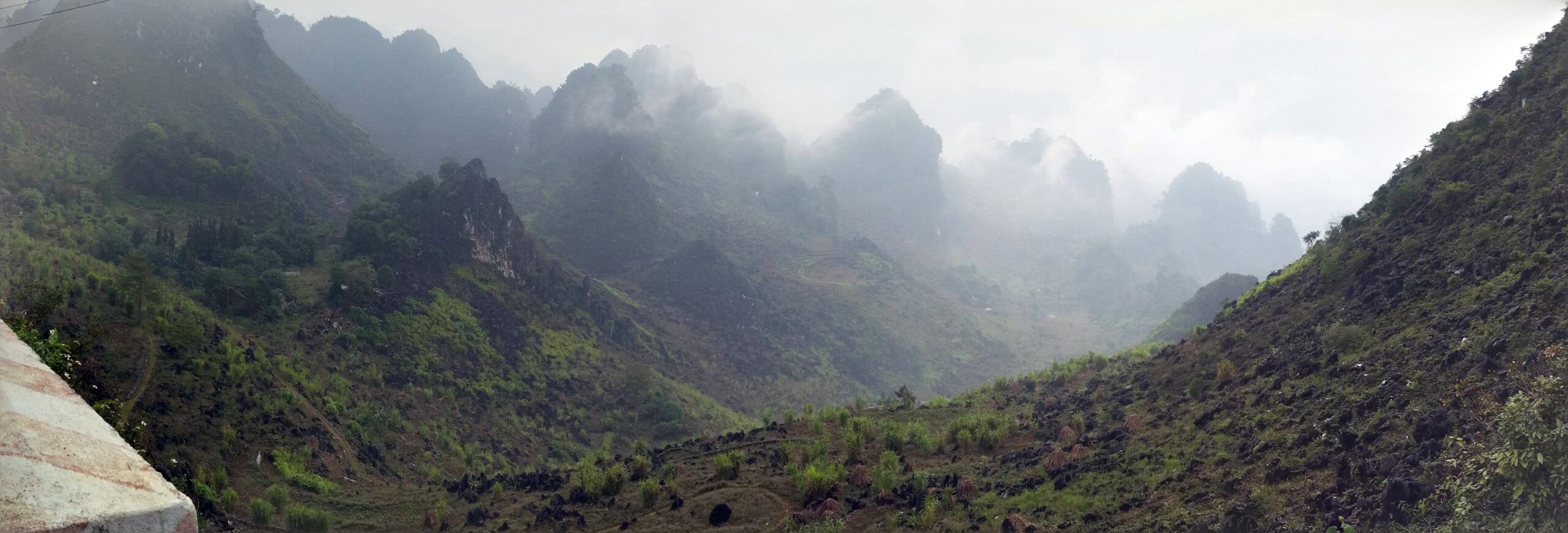
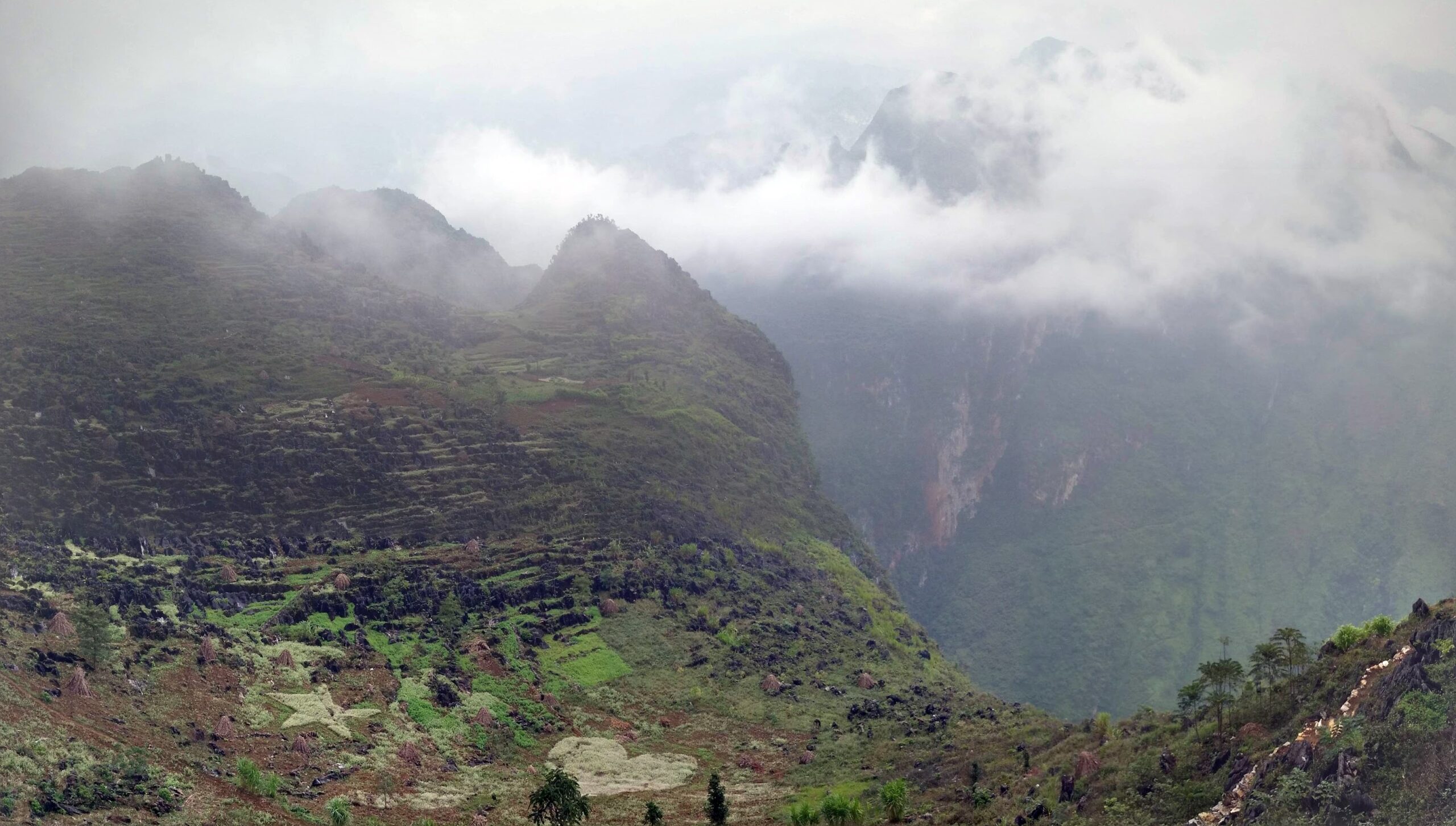
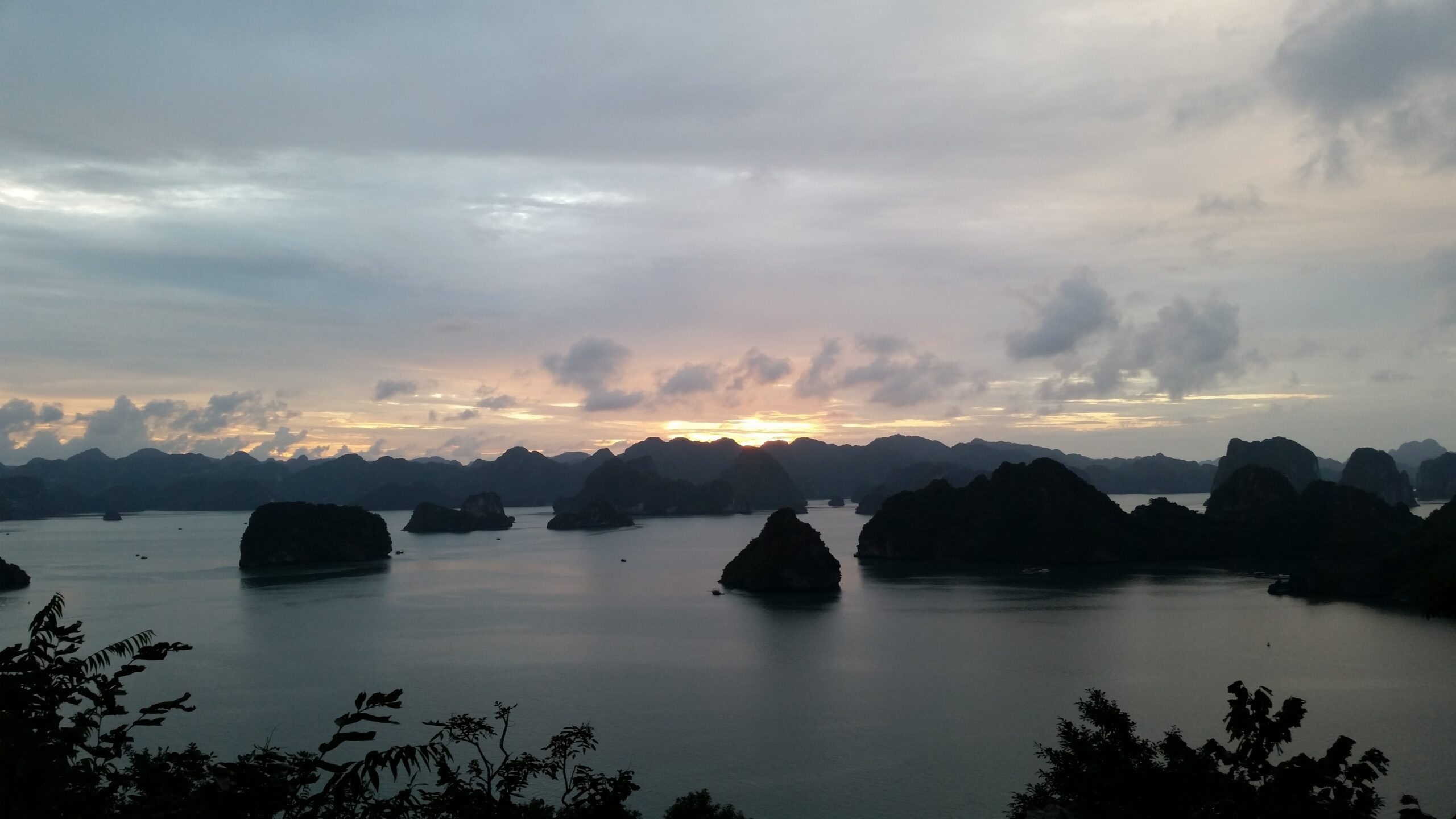
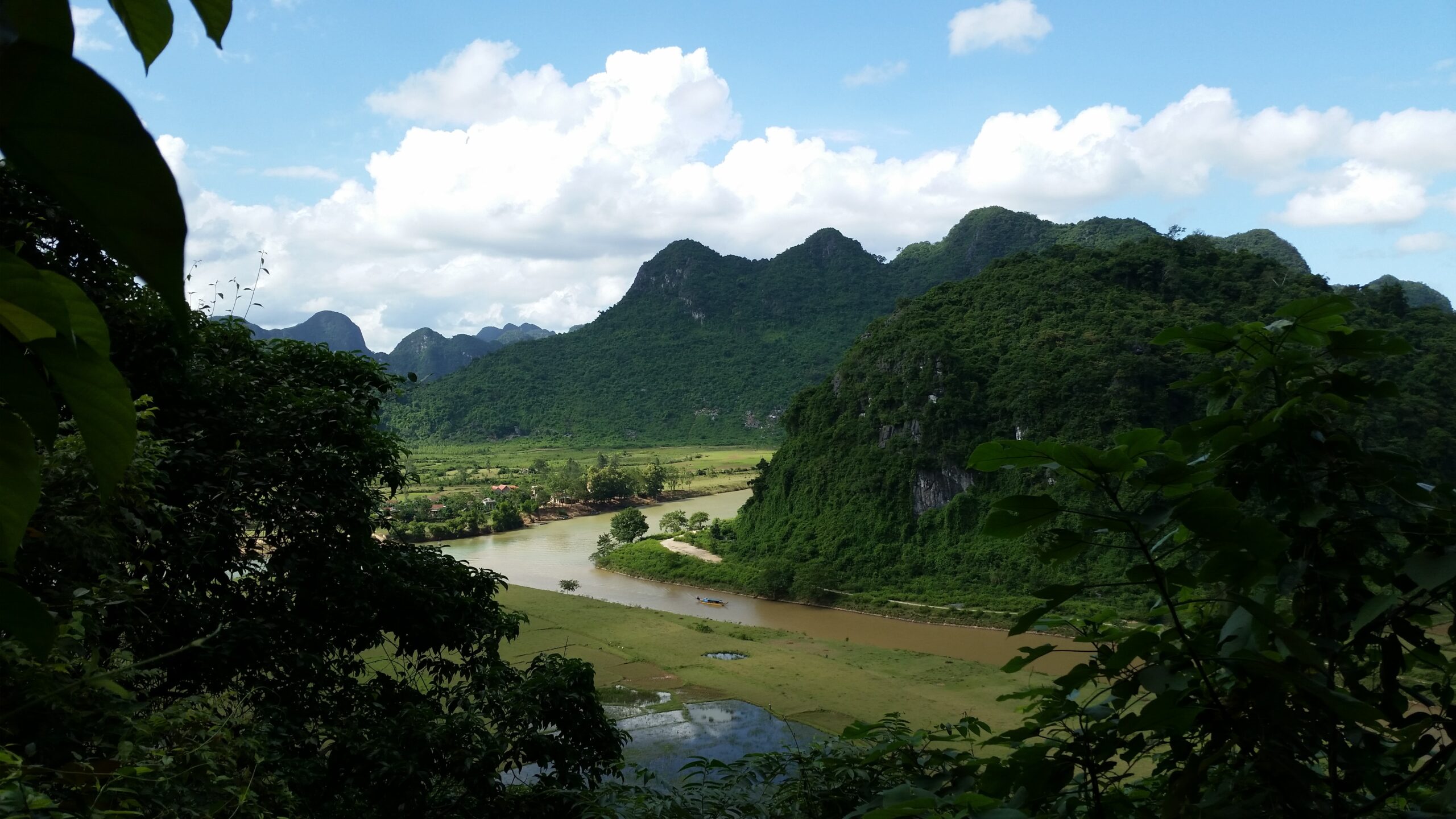
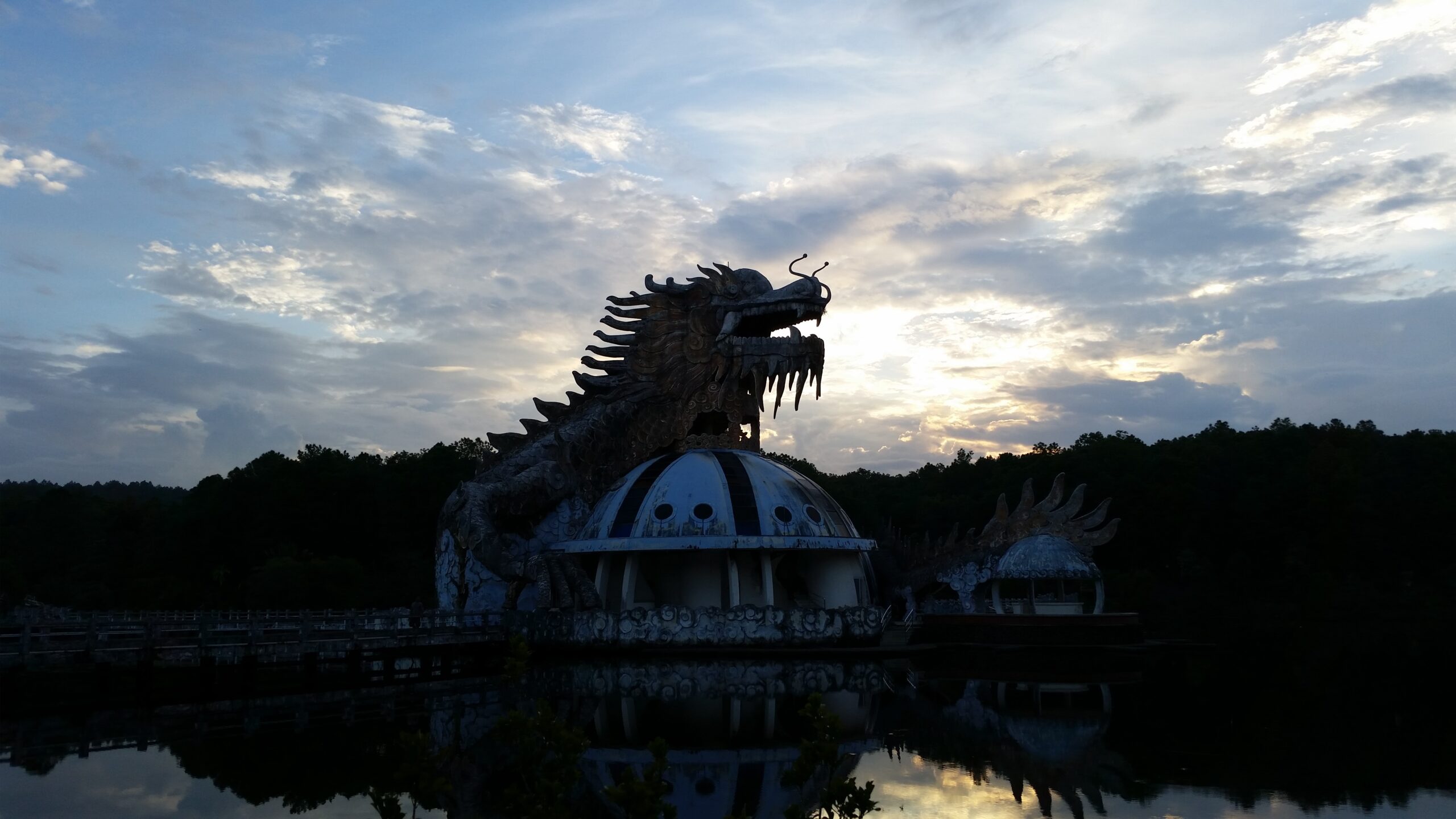
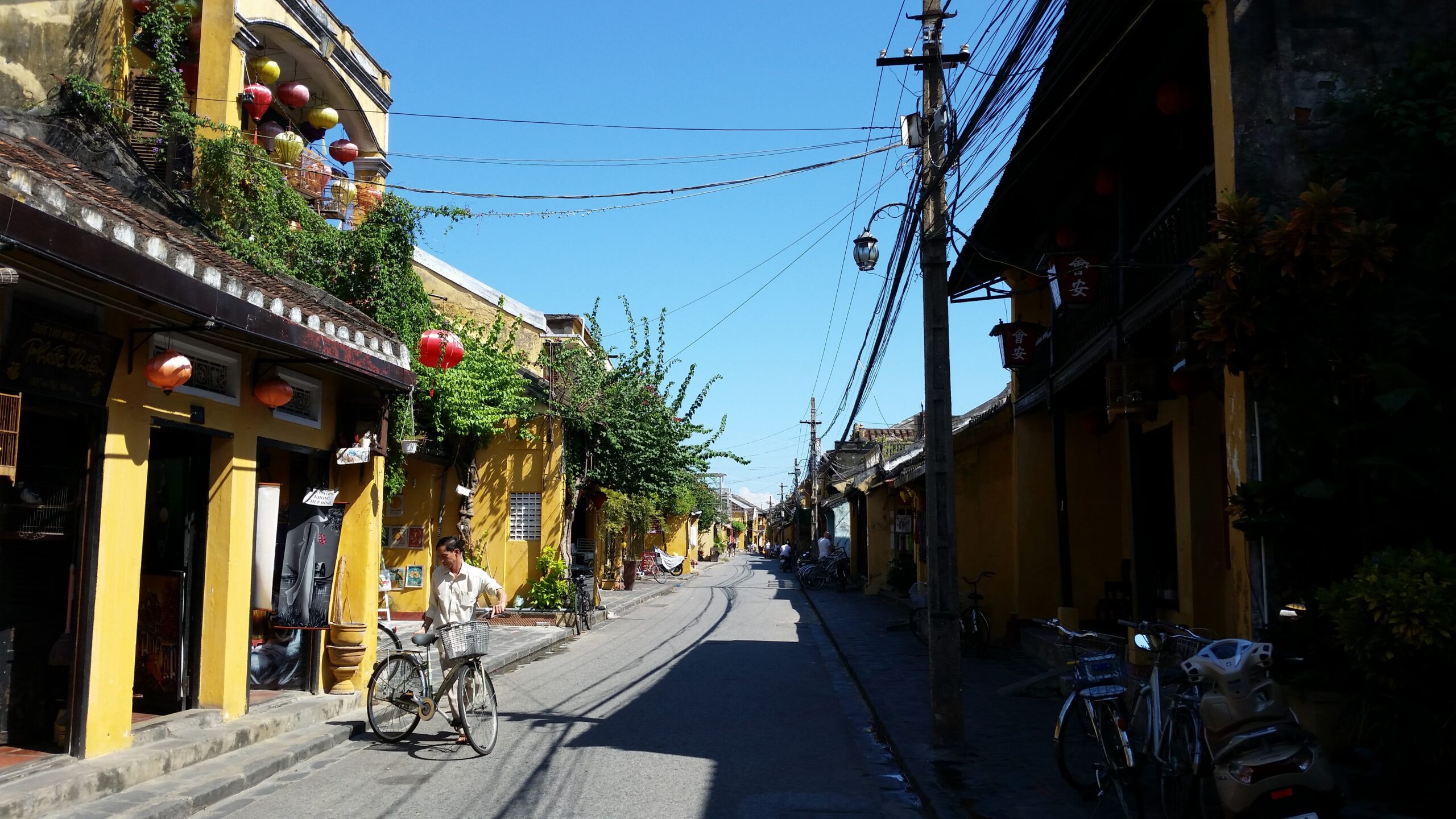
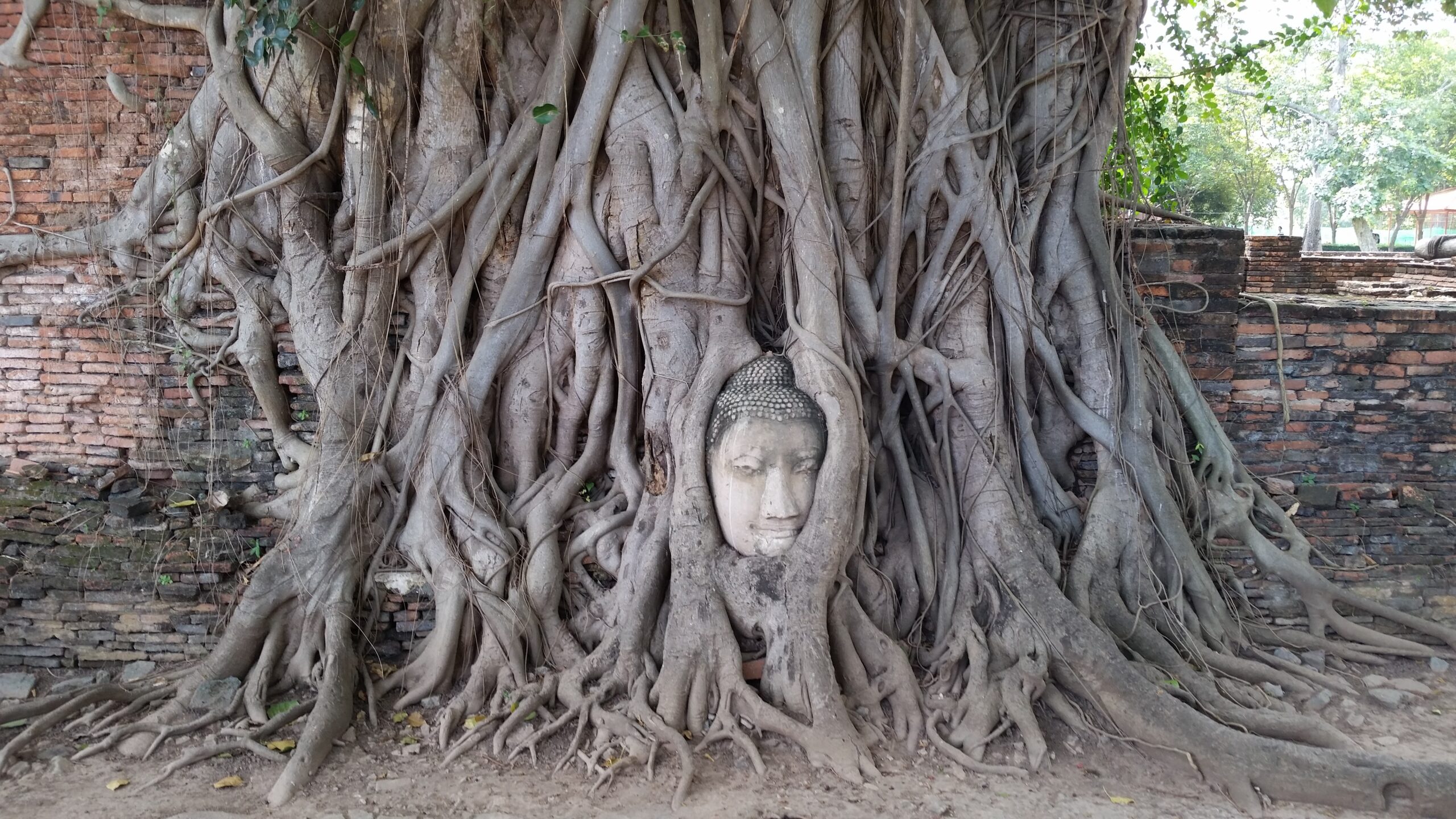
Boarding the flight back to the UK, there was only one certainty: I needed to go back.
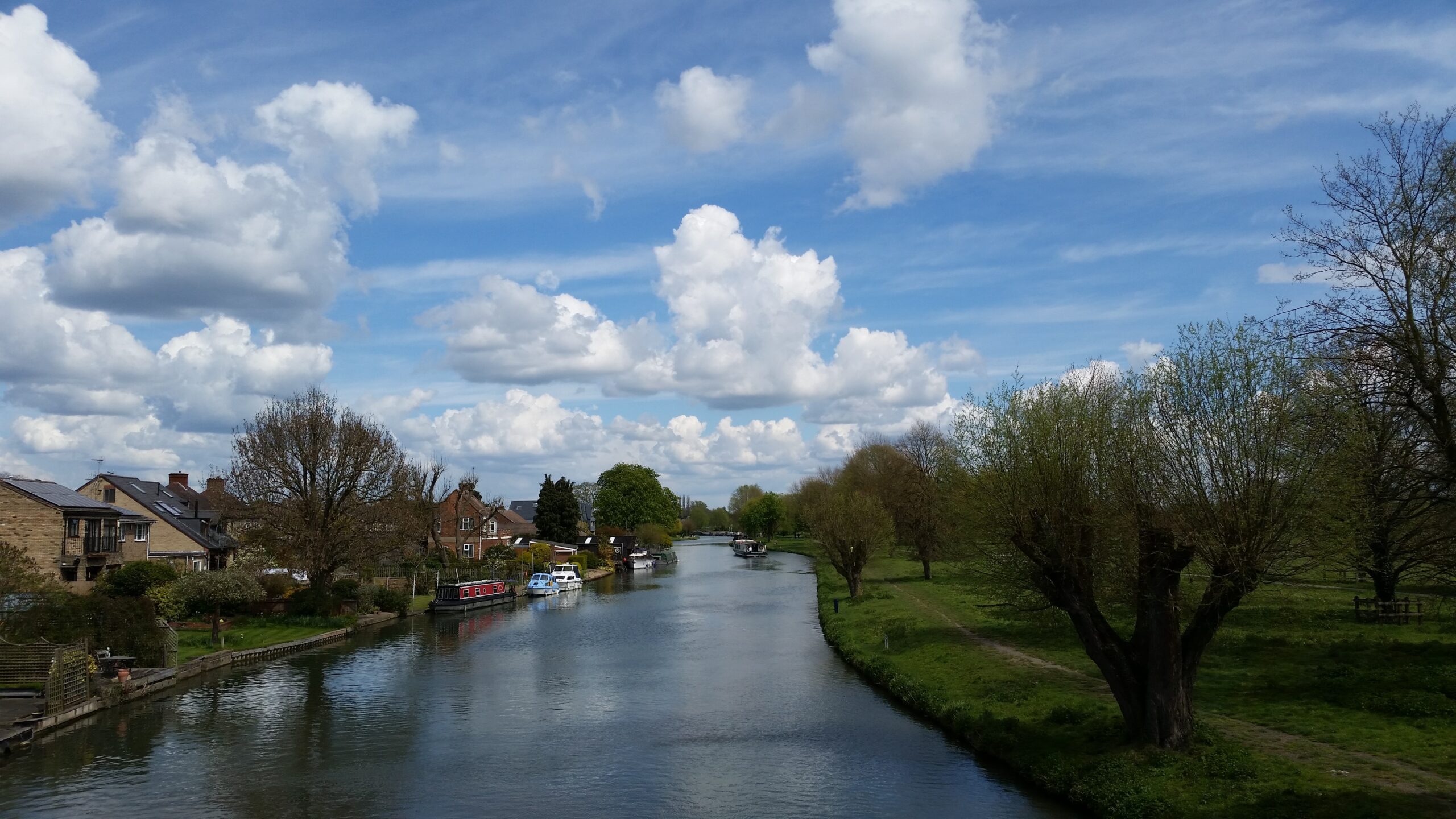
The following nine months of work were used to save as much as possible. This meant going back to a shared house, and heavily budgeting on expenses. Moving back to a shared house gave me the opportunity to heavily reduce my physical belongings. All my furniture, unused clothes and shoes, countless never used items were sold, recycled, or thrown out.
Trust me, there is nothing more liberating than voluntarily shrinking your belongings down to a backpack and a small box of paperwork.
Some time in August, I felt ready, and gave my four weeks notice. My last day at work was one day before my 34th birthday.
Packing my backpack and buying the one way ticket, I felt both elated and sorrowful.
Sorrowful for leaving Cambridge and my dear friends. Over the last four years, Cambridge had become my favourite place. The beautiful old town, Hogwarts like colleges, and greenery everywhere. It was like living in an enchanted garden. All the dear friends I made only added to the magic.
Elated as I couldn’t wait for the new adventure to start, new places to see, people to meet, and stories to live.
On the 3rd of November 2016, I flew to Yangon, Myanmar.
The initial plan and budget was encompassing six months to one year. And, as most of my plans go, it was a substantial misestimation. This journey lasted twenty-two months. It started in Myanmar and encompassed most of continental South East Asia, as well as big parts of South Asia, Central Asia, and pieces of the Middle East. I was going from one place to another, either following recommendations or my own curiosity.
I stayed at a meditation retreat in Thailand, hiked above five thousand meters in Nepal (with my best bro), trekked on Mongolian horses (with the woman who became my wife), hitchhiked on the Silk Road, volunteered with an NGO in Nepal, and many more stories (which will be developed in later posts).
May 2017 in Kathmandu, the beginning of my seventh month on the road. One month ago, my best friend joined the journey. After teasing him with pictures and stories for most of my trip, he finally gave up, quit his job, and bought a one way ticket to India.
3:00 AM, my eyes opened. A familiar feeling arose… another food poisoning. The night was spent going back and forth to the loo, taking probiotics, and drinking plenty of water. But, what a terrible timing.
We had booked a bus to Pokhara on the next day. Twelve to fourteen hours on a local bus, with no toilets, for who knows how many hours.
I wish I could say the bus ride went better than expected. But, let’s not linger on details.
Pokhara, the city of lakes, is the second-biggest city in Nepal. On a clear day, you can see three eight thousand meters peaks enthroning over the valley: the Dhaulagiri, the Manaslu, and the Annapurna.
Our hostel was close to Phewa Lake. This was our last stop before what would be one of the most incredible parts of our journey: the Annapurna circuit. A ten to twenty day hike around the Annapurna mountains.
Unfortunately, my digestive issues kept getting worse. Though not febrile, I was losing weight. After a battery of tests in a travel clinic: no clear diagnostic.
We left Pokhara and spent twelve days on the Annapurna Circuit, which, to this day, is still one of my best memories. Somehow, there, my symptoms seemed to pause.
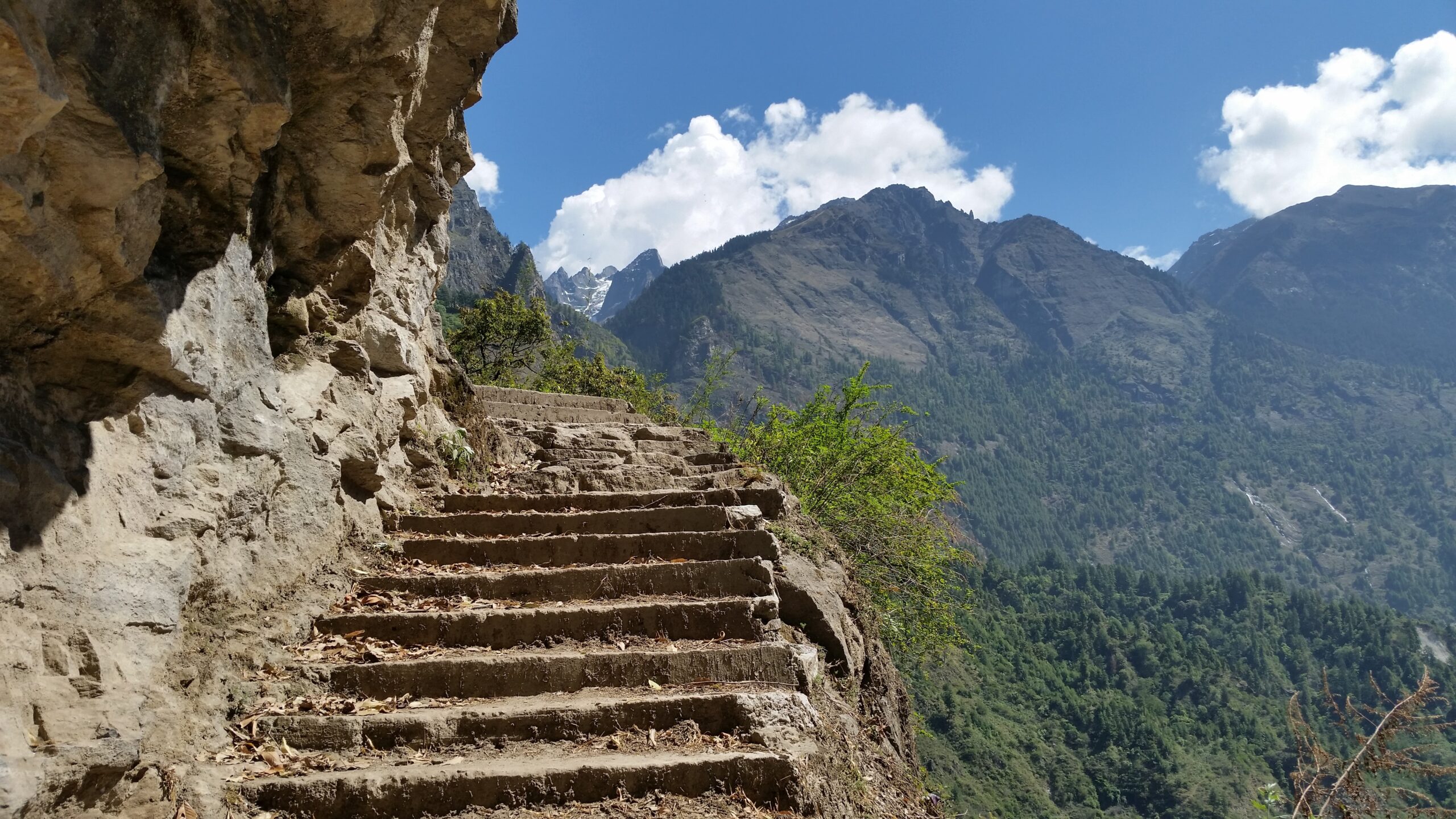
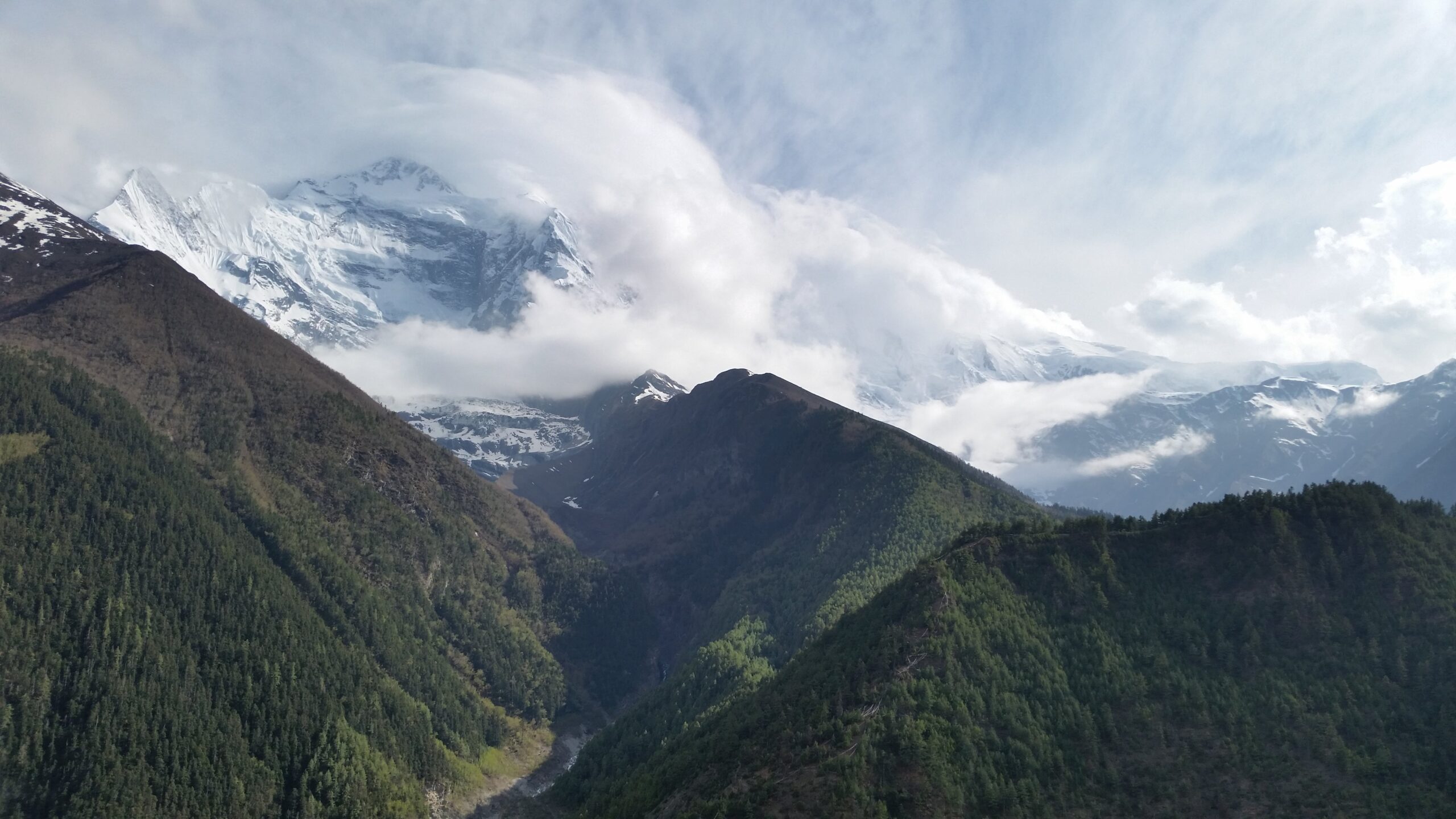
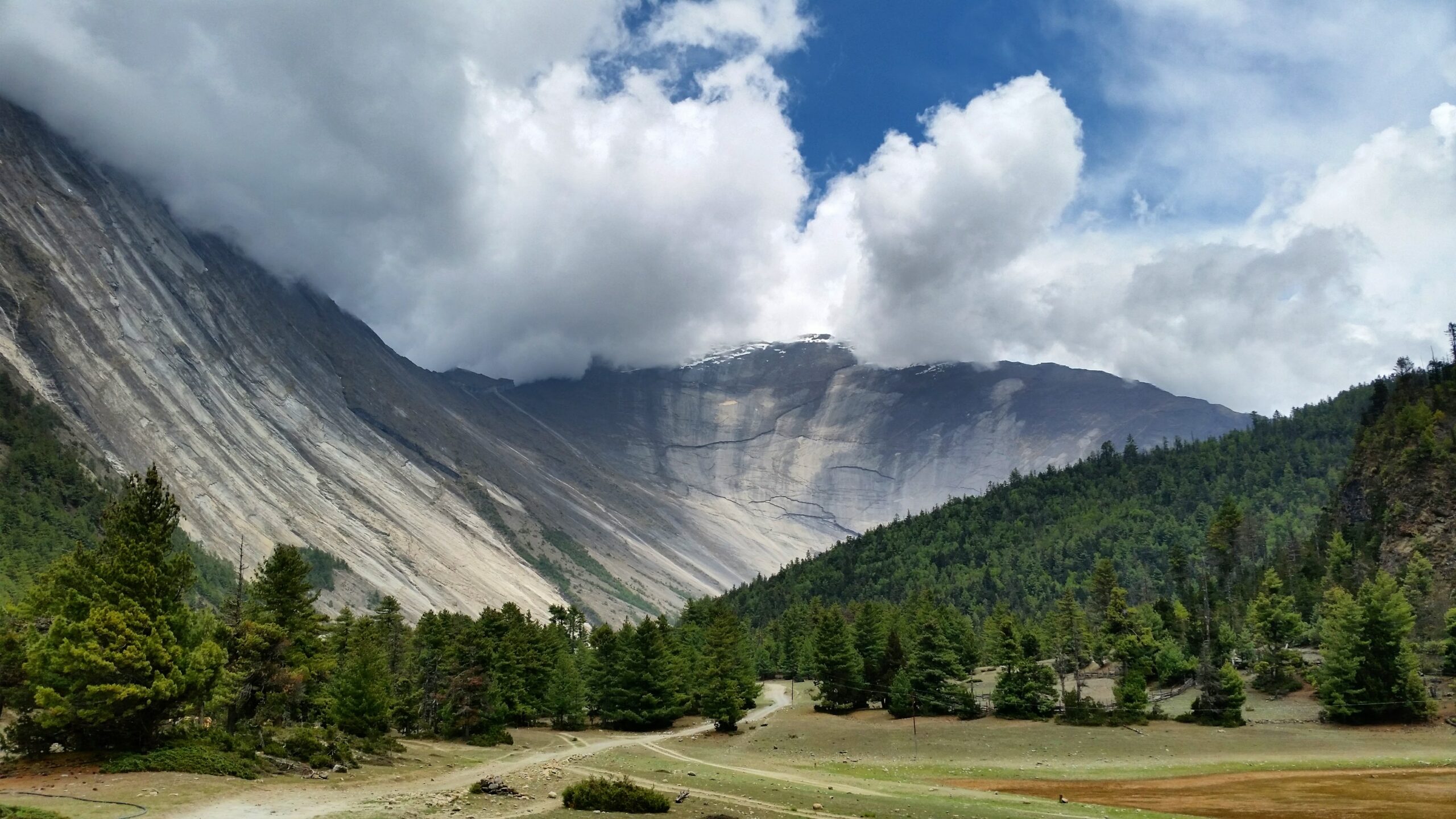
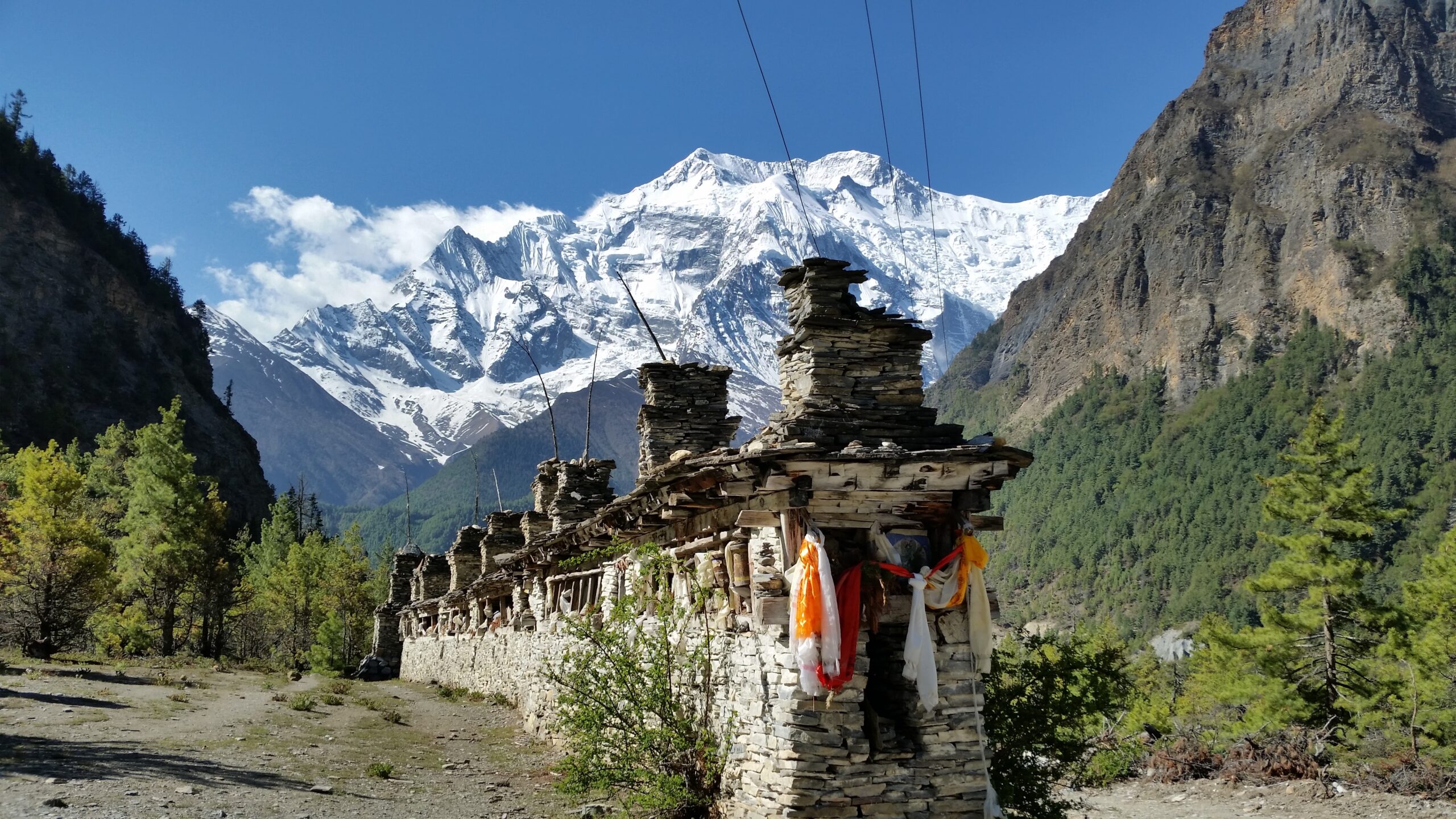
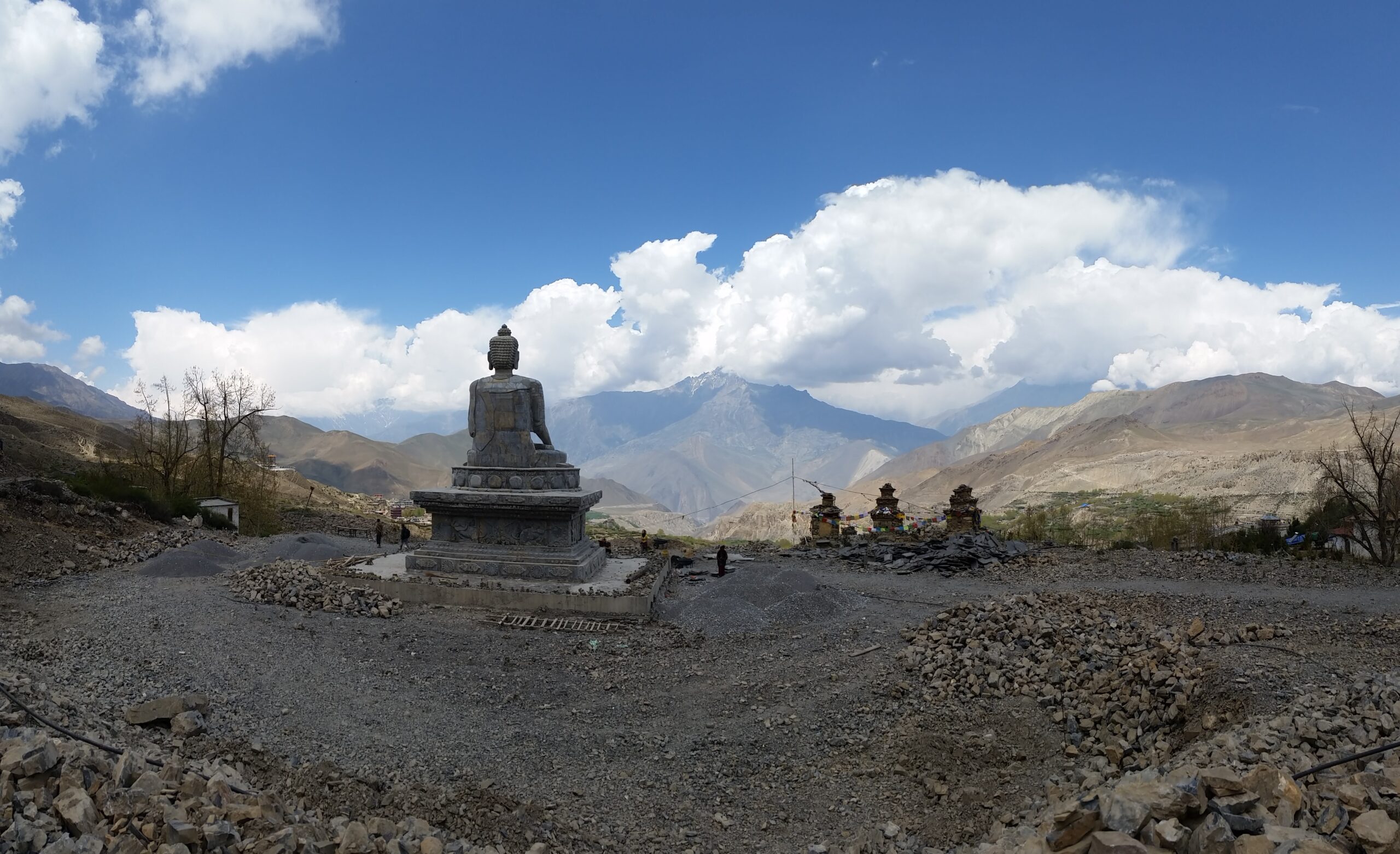
Over the next couple of months, things went from bad to worse. I lost a lot of weight, started having a rash growing on my back, brain-fog, and pretty severe mood swings. My mood was going from happy and easy going to deeply depressed and sometimes even angry. It’s an interesting experience to observe oneself going angry, and then watching your mind trying to find out why.
After visiting a couple of clinics, the closest things to a diagnostic was: “It’s probably an allergy.” and “Take these large spectrum antibiotics and anti-parasites, just in case.”
One day, small bubbles appeared on my left elbow. A quick Google search returned: dermatitis herpetiformis, “an external manifestation of an abnormal immune response to gluten”. This “abnormal response” has a name: Coeliac disease.
Digging deeper in the Google hole revealed more symptoms: diarrhoea, rash, weight loss, brain-fog, mood swing, depression, all very familiar.
Gluten is a structural protein naturally found in wheat, barley, and rye. As its name hints, it has viscoelastic and adhesive properties, and is often used as a glue, helping food stick together. One characteristic of gluten-free products is how easily they crumble.
Coeliac disease is an autoimmune disorder where your body and immune system reacts abnormally to gluten. During digestion, gluten is broken down into a peptide called gliadin, which is then modified into gliadin-tTG. In people suffering from Coeliac disease, this modified peptide is identified as a foreign body that should be attacked. The resulting inflammation damages the small intestines, leading to two major complications.
First, it causes a flattening of the villi (tiny hair-like projections that line the inside of the small intestine) resulting in food malabsorption.
Second, the intestinal damages can lead to “leaky gut”, letting in things which shouldn’t be in our bloodstream. This causes the aforementioned symptoms, and can trigger other autoimmune diseases such type 1 diabetes.
In doubt, I removed gluten from my diet. Within two weeks, no more rash, no more diarrhoea, no more mood swings, brain fog, or bubbles on the elbows. It all made sense. While hiking in the Annapurnas, we were mainly feeding on dal bhat, a traditional meal made of steamed rice and lentil soup. There was no gluten in there.
A few years later, the diagnosis was confirmed through a genetic test (you need one of two genes to develop Coeliac disease).
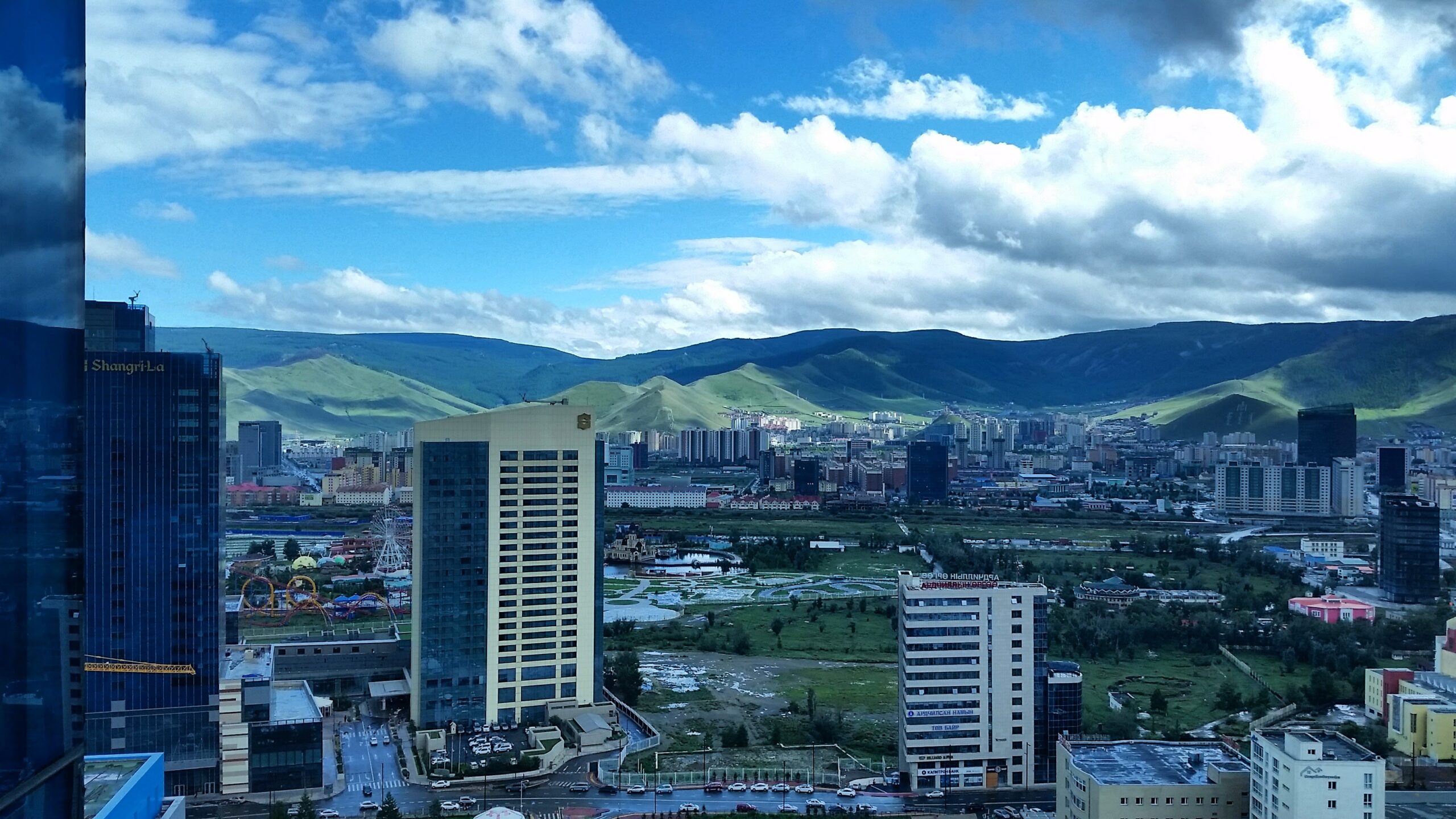
August 2017 in Ulaanbaatar, three months since my gluten problems started. I was trying to find food in a small supermarket.
“OK, this looks like rice noodles. Let’s look at the ingredients… улаан буудай (wheat). Next.”
Reading the ingredients, identifying potential allergens, was disheartening. Everything was written in Cyrillic and I had to memorise the symbols for gluten, wheat, barley, and rye. Going through one package after another, line after line until… nope, there is wheat in this one too. Eating became strenuous, may it be finding non-contaminated ingredients or trying to describe the problem at a food stand or small restaurant.
Later that day, we were walking through the streets of the Mongolian capital. Restaurants, shops, banks, municipal buildings, road signals and directions, everything was written in Cyrillic.
“What could these symbols mean? How are they pronounced? It can’t be that difficult, can it?”
And it hit me: Why didn’t I learn?
It’s 2017. We had unprecedented access to information. Why not just learn?
And I did, starting with Cyrillic.
Learning a writing system is a fantastic experience. At first, words seem obscure and mysterious. But then, they progressively gain meaning, one symbol after the other.
Later, in Kazakhstan, I decided to go further and learned a bit of Russian (it seemed at the time the second language in most of Central Asia). From trying to learn a few words, I went to check a bit of grammar, and maybe have short conversations. I continued learning languages in Turkey, Greece, Jordan, Iran, Sri Lanka, … What started like a curse became a defining element of my travels.

Around the end of summer 2018, a dreadful truth was getting more and more present in my mind: my budget was reaching its end.
It lasted much longer than expected, thanks to a very frugal approach to accommodation, transportation, and food. Moreover, I just finished a three month volunteering experience for an NGO in Nepal, which included food and accommodation.
The volunteering work was by far the most rewarding experience of my life. The schedule was intense, with often six days of work per week, and extra assignments and projects over weekends. Most of my time was spent either teaching, preparing classes, or learning Nepali. It was as exhausting as it was fulfilling.
I started entertaining the idea of continuing in this field. Perhaps getting an English teacher certification and finding missions around the world.
Woefully, there was one significant obstacle. The conditions related to food allergies were so bad, I had nearly lost ten kilos again. My last few weeks in Nepal were marred with the familiar symptoms of Coeliac disease. It became so bad that new ones, like migraines, appeared.
What was the second-best choice? My background was in computer science and machine learning (now called AI). What if I could connect that to my new interest in languages? Actually, there was already a name for that: Natural Language Processing (NLP).
A few of months later, I was back in Cambridge. An old friend welcomed me in a spare room of his shared house.
As the cold, dark, and humid British winter was at its dawn, I sat at a small desk and opened my laptop. Two years of technological advances to catch up with.
I focused on my screen, and started learning.
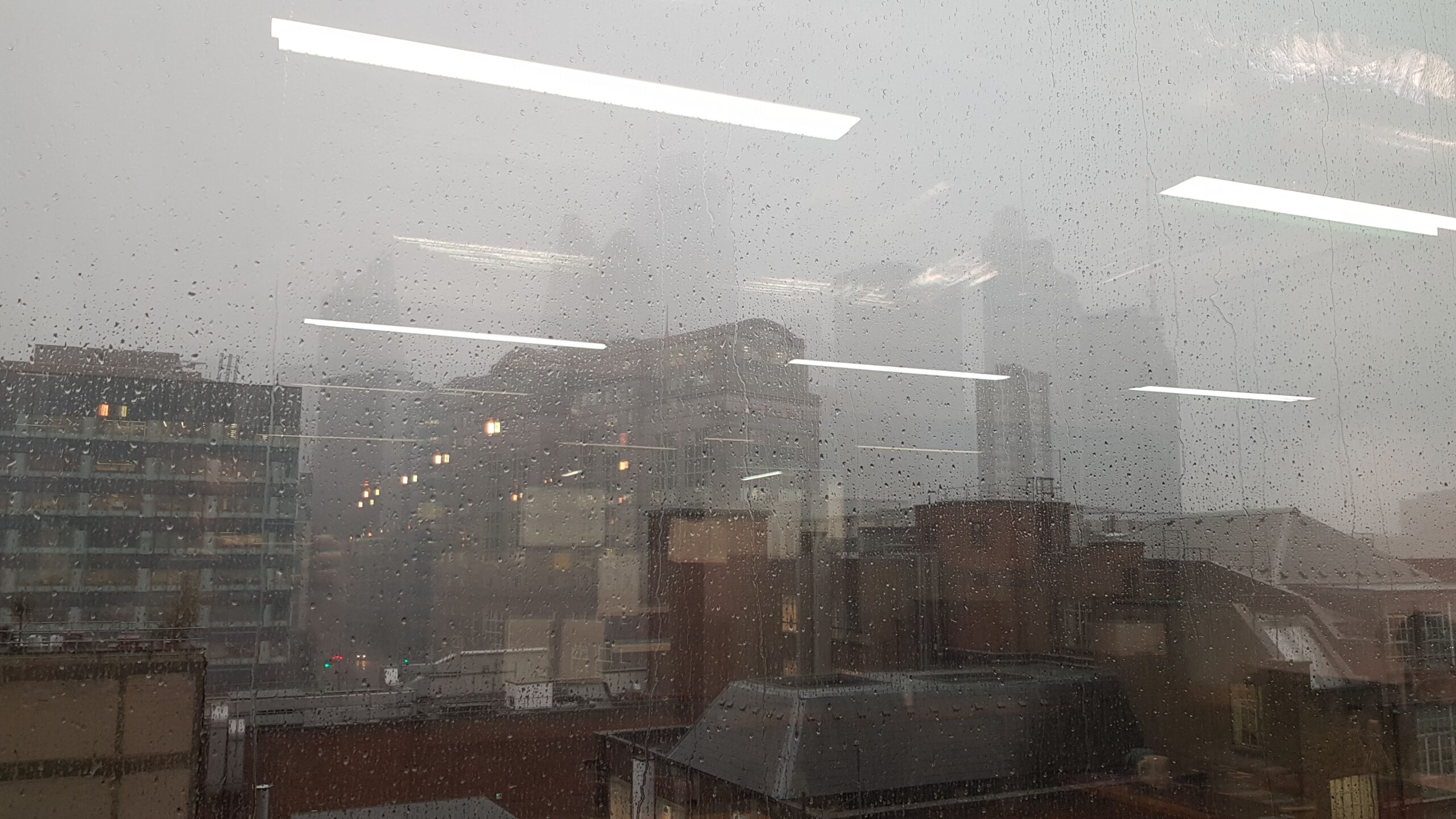
May 2025 in Dijon, France. I wish I could write that my career in NLP was a huge success.
Though, this “second career” was surprisingly turbulent, it carried its share of new friendships, learning experiences, and achievements. I worked in London and Paris for excellent companies and with great people. I even managed to teach NLP at an engineering school in Paris for almost three years.
A few months ago, I quit my fourth position since going back to the industry.
In February 2024, the third burnout hit.
It was milder than the previous two. I woke up one morning and couldn’t get out of bed. A feeling of dry fatigue and the impression of a hundred kilos dumbbell sitting on my chest.
Around 9 PM, I extended my arm to my phone. On the screen, pressing messages were asking for a complete revamped of my latest project. More notifications kept piling up for the next hours.
“Burnout with a good start of depression.” My GP wanted to put me on at least two weeks of medical leave. A dire list of piling work and responsibilities made me ask for one.
The next months looked very familiar, with subpar performances and a complete lack of motivation for my career. I went through psychotherapy and spent months reading about psychology and philosophy while journaling.
Though, the last five years had their fair share of good memories, improvements, and accomplishments, it was always through tremendous suffering. The whole journey felt like swimming against a torrential river while someone on the bank was throwing heavy barrels at my face.
“Just a little further. If I could go just a little further, it would finally make sense. Just beyond this hill, this other hill, this small mountain… Just ahead, there was something that would certainly justify all the pain.”
But every hurdle overcame was only followed by new ones.
At this stage, exhausted and bloodied, I was staring at a new, taller and scarier mountain. It was heavily raining, and thunder was closing in.
Around me was nothing of value.
I gazed above the next mountain, where I saw no light.
Two weeks left before my flight to Indonesia.
Do you know what I’ll do there? Neither do I, and I can’t wait. I have no plan but to document the journey, and languages I’ll study. If time allows it, I might even write legacy posts on the previous travels and studied languages.
If you managed to read all the way here, thank you. And please be part of my journey by letting a comment below.